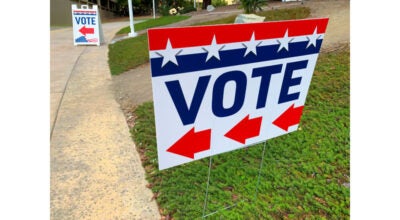Critical thinking versus indoctrination
Published 8:42 pm Tuesday, May 3, 2022
|
Getting your Trinity Audio player ready...
|
There are numerous definitions of critical thinking, but scholars generally characterize it as disciplined thinking that is clear, rational, open-minded, and informed by evidence. It is a necessary skill that must be mastered by high school and college students no matter what path they take after graduation. The keywords in this definition are “open-minded” and “evidence.”
Indoctrination is defined in educational settings by the Merriam-Webster Dictionary as teaching that presents “a usually partisan or sectarian opinion, point of view, or principle.”
There is increasing evidence that indoctrination is replacing critical thinking in all educational levels from pre-kindergarten through high school graduation and especially in colleges and universities.
At the elementary level, typically pre-kindergarten through grade 5, students should concentrate on learning the basics – reading, writing, simple math, entry computer skills, and health/physical education. They should not be concerned about highly political topics at such a young age.
Colleges and universities in past years were the hallmark for practicing critical thinking strategies. Students were required to examine all sides of an issue, analyze the facts they obtained from a thorough search of the literature, provide a recommendation as to a proper course of action, and defend their opinion based on evidence discovered. Most college courses utilized this method of instruction especially for courses in business, sociology, economics, history, government, and American and English literature. The only exceptions were math and science where 2 + 2 is always 4 and water boils at approximately 212 degrees Fahrenheit depending on the local atmosphere.
In his 2019 book “Restoring the Promise: Higher Education in America,” Professor Richard Vedder states that today’s college students are “less innately intelligent and less academically accomplished than those a generation or two earlier.” They “spend a great deal less time than those in college half a century ago doing academic things.” He reports that college students today spend very little time in group discussions so there is limited training in learning cooperative and collaborative methods of problem-solving.
College students today, while advocating for free speech, tend to limit the voices of guest speakers who visit campuses that have political or cultural philosophies that are different from their own. Most speakers with conservative views have been “disinvited” due to past history of similar speakers being shouted down or even threatened. The “Washington Examiner” reports that the ratio of commencement speakers with liberal views outnumber conservative speakers 37 to 1. College students also see U.S. presidents and state governors of both political parties rule by executive orders rather than waiting for the appropriate legislative actions.
As these students graduate and enter management positions, they have been taught to rule in a dictatorial fashion rather than using approaches that emphasize team-building, brainstorming, and group consensus. The result is that organizations are not as productive and employees have much less job satisfaction, thus they leave the organization.
Let’s hope that conditions soon emerge that return to diversity of thought and expression for the good of all concerned.
ROBERT N. “BOB” HOLT, a Franklin native, is a retired professor of business management and real estate at Southwestern Community College in Sylva, North Carolina. He holds bachelor’s, master’s and doctoral studies degrees from Virginia Tech and was a member of the university’s Corps of Cadets. His email address is hrobert@vt.edu.





